Chris Anderson
A 28-year-old black man by the name of Coleman Hughes popped up on Chris Anderson’s radar screen towards the end of 2022. In his capacity as head of TED Conferences, LLC (Technology, Entertainment and Design), Anderson was always on the lookout for individuals with a fresh perspective on scientific, cultural, and political topics to speak at TED’s annual conference in Vancouver, Canada.
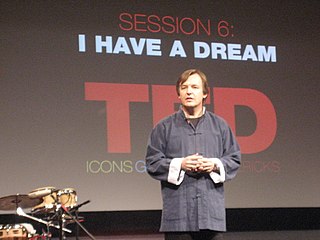
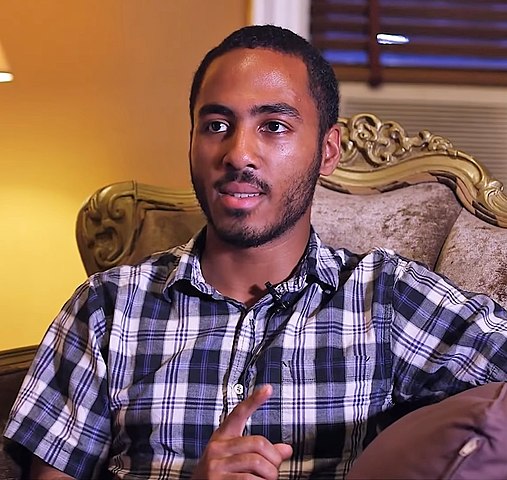
Mr. Hughes had become an item not because his ideas are novel. Rather, his popularity was the product of his quaint, counter-cultural message: that people should be treated equally in all circumstances—public or private—regardless of their race. Since TED’s avowed mission is to “spread ideas that spark conversation” and that move people “to think differently,” and to pursue “knowledge—without an agenda,”[1] Anderson invited Hughes to make his case for “color blindness.” Mr. Hughes accepted the invitation with alacrity[2] and delivered his remarks at the annual TED Conference held in April 2023.
“Color blindness” is an aspiration, not a literal claim that racism has been extinguished, Hughes told his audience.[3]This is a societal objective, one first espoused by the abolition movement during the 19th century. A hundred years later, it became the centerpiece of the civil rights campaign in the 1960’s. Indeed, color-blindness is the driving intellectual force behind Martin Luther King’s “I Have a Dream” speech.[4]
Popular social activists, such as Robin DiAngelo and Ibram Kendi, preach that a person’s race is his defining characteristic. If members of your race were treated unfairly in the past, then future discrimination is required to atone for what happened to your ancestors.[5] By contrast, Hughes believes we should be teaching our children that their skin color says nothing about their character, potential or value as a human being, or their place in society.
While Hughes’ remarks were lauded by many attendees, there were a few dissenting voices. During the “town hall” gathering on the final day of the conference, one woman said his talk was “racist, dangerous and irresponsible.” Otho Kerr, a program director at the Federal Reserve Bank of New York, claimed that Hughes is “willing to have us slide back into the days of separate but equal.” In response to their comments, Anderson reminded the audience that “TED can’t shy away from controversy on issues that matter so much.”[6]
But then, a TED Employee Resource Group—“Black@TED”—created to provide “a safe space for TED staff who identify as Black,” told Anderson they were upset by Hughes’s talk. Two weeks after the conference, Hughes received an email from Anderson telling him there was “blowback” on his talk and that “[s]ome internally are arguing we shouldn’t post it” on line.[7]
In a series of subsequent phone calls, Anderson acknowledged that “his employees’ anger stemmed from political bias” and promised that TED would release and promote Hughes’s talk as they would any other. This was a prevarication. The talk was not posted on TED’s website until July 28, 2023—more than three months after the conference. And TED did nothing to promote it.[8]
Appeasing disgruntled employees and others critical of the color-blindless philosophy espoused by Coleman Hughes was more important to Chris Anderson than being faithful to TED’s mission of “spreading ideas that move people to think differently, and to pursue knowledge—without an agenda.”
A BYU Professor

In September of last year, a freshman at BYU who is studying public relations (I will call her “Sarah”), shared with me an exercise conducted by the professor in her Communications 101 class. The teacher began his lecture by asking his students, “Which news sources do you trust to provide an accurate account of current affairs?” He then proceeded to name a few. “Fox News?” Several hands were raised. When he mentioned other media outlets, such as CNN and The New York Times, different students raised their hands, and so on.
Finally, he asked, “What about the prophet (i.e., the President of the Mormon Church)?” Virtually every hand in the room shot straight for the sky with the same zeal as that exhibited by high school and college students for Chairman Mao Tse-tung during the Cultural Revolution in China.
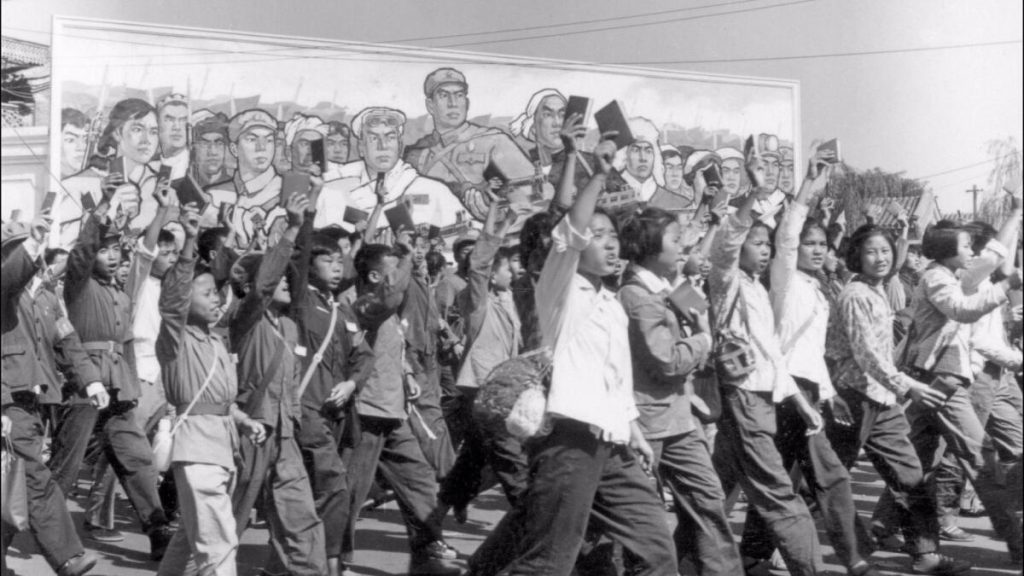
copies of Chairman Mao Tse-tung’s Little Red Book as they parade in Beijing’s streets.
Sarah was prompted to share this experience with me because of a story I told her shortly before she left for college:
When I attended BYU in the early 1970s, there was a creative writing instructor who often distributed to his first-year students two essays on the same topic. The author of the first essay, the class was told, was a general authority—i.e., a bigwig—in the Mormon Church, while the second essay had been written by an Ivy League professor. After the students had finished reading both, the professor asked the class, by a show of hands, which one was best. Virtually everyone sided with the general authority. In some instances, it was unanimous.
The professor then proceeded to dissect each essay, illustrating how the logic and reasoning of the Ivy League scholar was far superior to that of the general authority. But many students were reluctant to agree with their instructor, though they struggled to refute his arguments. The holdouts only yielded when their teacher revealed that he, in reality, was the author of each essay.
The students, the professor explained, had succumbed to the Authority Fallacy. This occurs when someone relies solely upon an individual’s status, instead of the quality of his evidence and analysis, when evaluating his opinions. But a person’s authority, education or claimed expertise—be he a professor, president, prophet or pope—have no intrinsic bearing on the integrity of his ideas or the facts on which they are based.

I told Sarah, critical thinking—an analytical approach that originated with Socrates—is what this creative writing professor was trying to teach his students. He wanted them to approach every question dispassionately, to analyze it thoroughly and objectively, without bias or desire for a particular result. This, he said, is the only way we can divine empirical truth. As John Henry Newman, author of The Idea of a University, explained, such a mindset is what allows us “to see things as they are, to go right to the point, to disentangle a skein of thought, to detect what is sophistical, and to discard what is irrelevant.”[9]
Her communications instructor, by contrast, was implicitly endorsing the opposite. Indeed, he was championing an extreme version of the Authority Fallacy: reflexively treating an authority figure (i.e., the Mormon prophet) as a trusted source of information on current affairs when that individual lacks the ability, qualifications and expertise to function in such a capacity.
As strange as this may sound, this professor had a strong incentive to teach something nonsensical to his students.
In February 2021, Jeffrey Holland, a member of the Quorum of Twelve Apostles, delivered what has come to be known as his “musket fire speech” to the faculty and staff of BYU. In his remarks, Holland urged the faculty and staff to take up their intellectual “muskets” and defend the church, especially its teachings on marriage. Professors need to become advocates for the church, he said, even if their lack of impartiality results in the school’s loss of “professional associations and certifications.”[10]
Lest anyone think Holland had not made himself clear, in January 2023, BYU’s associate academic vice president of faculty development, Justin Collings, admonished the faculty to focus their research on advancing church beliefs, policies and practices.[11] The school’s new “strategic plan” urges them to do the same in the classroom.[12] Collings then issued an ultimatum to all department chairs: revise your criteria for promotion to better reward faculty whose work supports church teachings and do it now.
Among those core church teachings are pronouncements such as, “prophets always teach the truth,”[13] church leaders teach “pure truth,”[14] and “the words and policies of church leaders are Christ’s words and policies.”[15] Thus, in an apparent effort to align his course instruction with church teachings and perhaps secure a pay raise and promotion, Sarah’s communications professor led his students to believe that the Mormon prophet is a reliable news source, even though such silliness, if propounded at a regional academic conference, would be met with scorn by his peers.
Laurence Tribe, Michael Luttig, et al.
On December 19, 2023, the Colorado Supreme Court ruled, by a vote of 4-3, that Section 3 of the 14th Amendment to the U.S. Constitution, precludes Donald Trump from reclaiming the presidency and, therefore, his name must be excluded from the state’s presidential ballot. An appeal of the Colorado court’s decision was promptly filed with the U.S. Supreme Court.
As is customary, the media solicited the views of various legal experts on how the nine justices on the Supreme Court would resolve this issue. CNN, for example, sought input from, Michael Luttig, a retired federal judge. “I’m always exceedingly careful with my word choice in public on profound matters of great importance,” he began. “What I have said is that I am confident that the Supreme Court would affirm [the] decision based upon the objective law, which in this instance is Section 3 of the 14th amendment. Which is to say that I know that the Colorado Supreme Court decision is unassailable in every single respect under the Constitution of the United States.”[16]
Laurence Tribe, a well-known constitutional lawyer who often appears on NCB News, concurred with Luttig’s assessment: the Colorado court’s decision was “unassailable,” he said.[17] Then acting U.S. Solicitor General Neal Katyal chimed in, saying: Colorado “did get it right.” He went on to say that “our founders did have this absolute “constitutional requirement that you can’t be an insurrectionist” and then serve as President.[18]
Finally, Tristan Snell, an MSNBC and CNN legal analyst argued that any “state or local official can reject Trump as constitutionally disqualified from office under the 14th Amendment. It does not require Congress. It does not require a lawsuit. Trump has already been disqualified. Automatically. Colorado just recognized the obvious.”[19]
As a lawyer with some experience in the field of constitutional law, I was perplexed by the conviction with which these self-styled experts voiced their opinions, especially since the three Colorado Supreme Court judges who dissented from the majority opinion made some compelling arguments. Further, prior to the Colorado Supreme Court decision, several states had flatly rejected all efforts to keep Trump off the ballot. Indeed, by the time the U.S. Supreme Court reversed the Colorado decision in early March, seventeen states had sided with the Trump campaign on this issue while only one other state court—Cook County Circuit Court in Illinois—had concurred with Colorado.[20]
So, why did these “experts” and “news analysts” not qualify their opinions, “hedge their bets,” so to speak? How could they all have been so spectacularly wrong? After all, the U.S. Supreme Court ruled, in a unanimous decision, that states have no power to exclude candidates for federal office from the ballot. Even more perplexing is that these media outlets continue to rely upon these “experts” to provide accurate assessments of legal matters to their viewers.
The journalist Matt Taibbi offers a partial explanation for this behavior. “Media firms,” he says, “work backward. They first ask, ‘How does our target demographic want to understand what’s just unfolded?’” Then they tell them what they want to hear.[21] But these media firms are also attempting to mold the thinking of their audiences. For they, too, are “self-styled experts” who know what their viewers need to see and hear and how they should think.
Tribe, Luttig, Katyal and Snell, along with many others who are asked to weigh in on the issue du jour, know this and tailor their opinions accordingly. Being wrong—even spectacularly wrong—is forgivable. Failing to stick to the narrative is not. The opinions of those who value factual accuracy, objectivity and unbiased assessments of complex issues over the narrative are neither valued nor welcomed.
Roland Fryer
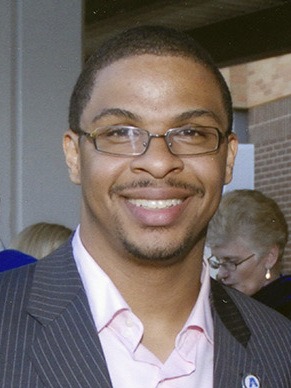
A boy abandoned by his mother as an infant and raised by a chronically unemployed father with a serious gambling problem, is not likely to succeed in the modern world. Especially if he is black. But Roland Fryer beat those odds, graduating from the University of Texas with honors and then earning a Ph.D. in economics from Pennsylvania State University.[22]
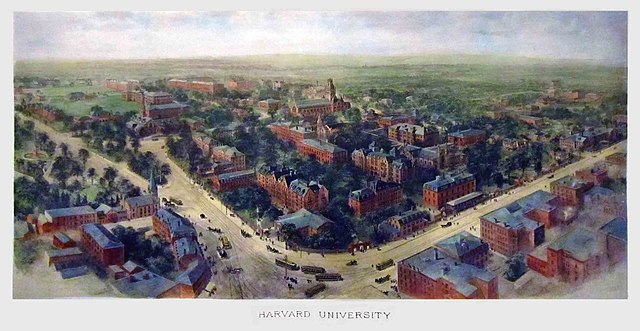
After securing a faculty position at Harvard, he became, at age 30, the youngest fully tenured African American professor in the university’s history. A few years later, he received a MacArthur Fellowship—also known as a “Genius Grant”—the first of many accolades and awards to come. But the trajectory of his career took a sharp downward turn in 2019 when he elected, against the advice of his peers, to publish the results of research he had conducted on the subject of racial differences in the use of force by the police.[23]
Fryer’s study was detailed and rigorous, involving millions of data points and thousands of observations. It took Fryer and his team nearly a year to analyze the information they had amassed.[24] But the results weren’t entirely what they expected.
According to their analysis, there are significant racial differences in police use of nonlethal force. Fryer found that police in New York City, in a nonlethal situation, are 53% more likely to use physical force on a black civilian than a white one.[25]
For his study of officer-involved shootings (i.e., the use of lethal force), Fryer collected data from localities in five states. Much to his surprise, he “found no racial differences in shootings overall, in any city in particular, or in any subset of the data.” Further, the results on police shootings were statistically the same across all types—“ranging from officer-initiated contact with a suspicious person … to a 911 call of a homicide in progress.”[26] Fryer was taken aback by these results; he later said he expected to see racial bias in these situations. But it wasn’t there.[27]
Several of Fryer’s colleagues urged him not to publish his study, saying, “this will ruin your career.” “Publish it another time,” they suggested. But not now when racial tensions are so high.
Fryer decided to perform the analysis again to make sure he hadn’t missed anything. When the results proved to be the same, he concluded that his study was statistically robust. So, he published it online. Four minutes later he received the first comment on his 104-page, academic economics paper with a 150-page appendix: “This is full of shit. Doesn’t make any sense.”[28]
Then came threats of violence, necessitating around-the-clock police protection for over a month. An officer was detailed to accompany him even while he performed simple tasks, like going to the grocery store.
Just when he thought things couldn’t get worse, soon after publishing his paper, he became the subject of an opaque sexual harassment investigation by his employer. His only transgressions, according to the Harvard investigators, were some harsh comments directed at co-workers and a few sex-tinged jokes in the laboratory. But he never touched a student or colleague in an inappropriate manner and never sexually propositioned anyone.[29]
The investigators recommended Fryer undergo remedial training “on setting boundaries;” nevertheless, his faculty dean felt something more severe was warranted since Fryer’s much-celebrated research into education and policing was at odds with the progressive narrative on race. The dean went so far as to ask Harvard’s president to revoke Fryer’s tenure, but he demurred. Nevertheless, Harvard did suspend Fryer without pay for two years and shut down his lab. When he returned to the university in 2021, he was not allowed to work with graduate students.[30]
Roland Fryer was recently asked how he endured these injustices, the threats to his person, and the ostracization by his peers. He simply said, “I do not covet what they covet.”[31]
Oh, and the name of the faculty dean who led this witch hunt at Harvard, who wanted Fryer’s tenure revoked because he refused to suppress facts incompatible with the prevailing narrative”? Claudine Gay.[32]
Diogenes of Sinope
Diogenes of Sinope, also known as “Diogenes the Cynic” and “Diogenes the Dog,” was borne in an Ionian colony on the Black Sea, circa 410 B.C. He was a contemporary of Plato, Aristotle, and Alexander the Great. Legend has it that he died in 323 B.C. on the same day as Alexander.[33]
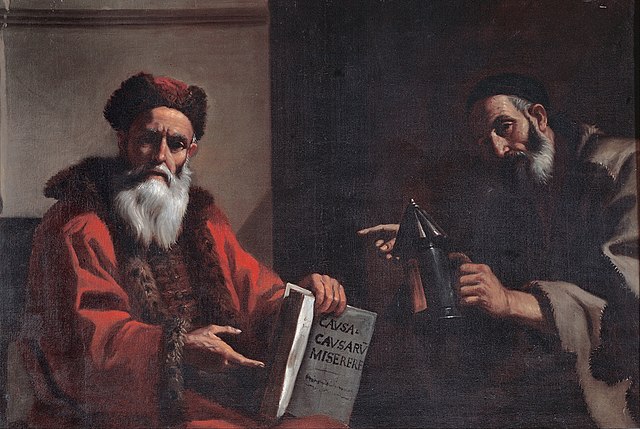
Diogenes was a Greek philosopher and the founder of Cynicism. Like Christ and Socrates, he was an oralist. He left behind no body of work. We know him only through the stories and histories of others.[34]
Diogenes and the other Cynics did not form schools or propose systematic principles for understanding the world and man’s place in it. In the words of one scholar, “[t]heir mode of life was a philosophy of doing.”
They drew a sharp distinction between “needs” and “wants,” giving highest priority to “human goods.” They eschewed what we call “materialism” and the honors of men. Finally, they were advocates of “cosmopolitanism,” the comity and integration of nations. Indeed, Diogenes is credited with coining that word.[35]
Diogenes, above all, was a minimalist. He lived outdoors for much of his life where he delighted in provoking passersby. He once chided those people who perform sacrifices for the benefit of their health and then proceed to feast in a manner injurious to their health.[36] Because of his legendary frugality and lack of interest in material goods, his name was given to a European Union program aimed at reducing obesity. DIOGENES: DIet, Obesity, and GENES.[37]
In 334 B.C., Alexander the Great launched his invasion of Persia. Before doing so, according to Plutarch, he traveled to the Isthmus of Corinth to enlist the assistance of the Greeks. Given Alexander’s power and reputation, many politicians and eminent philosophers came to greet and praise him. But Diogenes was not in their company, which disappointed Alexander—how could anyone not want to be in the presence of the Great Alexander?[38]
So, Alexander and members of his retinue sought him out. They found him relaxing outdoors and basking in the sun. Alexander greeted Diogenes, and then proceeded to ask him if there is anything he wanted? By some accounts, Alexander offered Diogenes half of his kingdom.[39]

Diogenes looked at him and asked, “Anything?!?” “Yes,” replied Alexander. “Anything.” “Well,” said Diogenes, can you move to the side a little; you’re blocking my sunlight.”
While his bodyguards and friends were ridiculing and mocking Diogenes, Alexander was so struck at being held in such contempt and so impressed with Diogenes’ detachment, he said, “But as for me, if I were not Alexander, I would be Diogenes.”[40]
[1] “TED: Ideas Change Everything, https://www.ted.com/about last accessed on May 26, 2024.
[2] Coleman Hughes, “Why Is TED Scared of Color Blindness?” The Free Press, September 26, 2023, https://www.thefp.com/p/coleman-hughes-is-ted-scared-of-color-blindness last accessed on May 26, 2024.
[3] Coleman Hughes, The End of Race Politics: Arguments for a Colorblind America, (New York, New York: Thesis (Random House), 2024, p. 16.
[4] Ibid, p. 16.
[5] Ibram X. Kendi, How to Be an Anti-Racist, (New York, New York: One World, 2019), p. 19.
[6] “Why IS TED Scared of Color Blindness?” supra.
[7] Brian Stewart, “What You Can’t Say in a TED Talk,” National Review, March 28, 2024, https://www.nationalreview.com/magazine/2024/05/what-you-cant-say-in-a-ted-talk/ last accessed on May 26, 2024.
[8] “Why IS TED Scared of Color Blindness?” supra.
[9] John Henry Newman, The Idea of a University, (London, England: Aeterna Press, 2015), p. 126.
[10] Jeffrey R. Holand, “The Second Half of the Second Century of Brigham Young University,” BYU Speeches, 2021 University Conference, August 23, 2021, last accessed on February 25, 2023, https://speeches.byu.edu/talks/jeffrey-r-holland/the-second-half-second-century-brigham-young-university/ last accessed on May 26, 2024.
[11] Tamarra Kemsley, “BYU faculty members urged to align their teaching, research better with LDS tenets,” Salt Lake Tribune, January 29, 2023, last accessed on February 25, 2023: https://www.sltrib.com/religion/2023/01/29/byu-faculty-urged-align-their/ last accessed on May 26, 2024.
[12] Peggy Fletcher Stack, “BYU requires new hires to waive their right to clergy confidentiality,” Salt Lake Tribune, August 28, 2022, last accessed on February 25, 2023: https://www.sltrib.com/religion/2022/08/28/byu-requires-new-hires-waive/ last accessed on May 26, 2024. (“BYU’s ‘strategic plan’ outlined this week, the university expects all faculty, particularly new hires, ‘to authentically incorporate gospel truths into all student interactions and to teach their subject bathed in the light and color of the restored gospel.’”)
[13] Russell M. Nelson, “The Love and Laws of God,” devotional address delivered at Brigham Young University on September 17, 2019, last accessed on February 25, 2023: https://speeches.byu.edu/talks/russell-m-nelson/love-laws-god/ last accessed on May 26, 2024.
[14] Russell M. Nelson, “Pure Truth, Pure Doctrine, and Pure Revelation,” October 2021 General Conference of The Church of Jesus Christ of Latter-day Saints, last accessed on February 25, 2023: https://www.churchofjesuschrist.org/study/general-conference/2021/10/11nelson?lang=eng last accessed on May 26, 2024.
[15] Kevin S. Hamilton, General Authority Seventy, “Why Church,” (Devotional Speech delivered at Brigham Young University, January 24, 2023), https://speeches.byu.edu/talks/kevin-s-hamilton/why-a-church/ last accessed on May 27, 2024.
[16] Ian Ward, “‘The Opposite of Politics’: A Conservative Legal Scholar Says Kicking Trump Off the Ballot Is ‘Unassailable,’” Politico Magazine, December 21, 2023, https://www.politico.com/news/magazine/2023/12/21/luttig-14th-amendment-trump-00132792#:~:text=q%26a-,%27The%20Opposite%20of%20Politics%27%3A%20A%20Conservative%20Legal%20Scholar%20Says,from%20running%20for%20president%20againlast accessed on May 26, 2024.
[17] Christina Pazzanese, “Trump’s Cloudy Future,” The Harvard Gazette, December 20, 2023, https://news.harvard.edu/gazette/story/2023/12/no-easy-exit-ramp-for-scotus-on-trump-harvard-scholar-says/ last accessed on May 26, 2024.
[18] Becket Adams, “The Media’s Legal ‘Experts’ Botched the Trump Ballot-Access Case,” National Review, March 10, 2024, https://www.nationalreview.com/2024/03/the-medias-legal-experts-botched-the-trump-ballot-access-case/ last accessed on May 26, 2024. (Mr. Katyal neglected to explain how “founders” played a role in the 14th Amendment, which was not adopted until 1865.)
[19] Tristan Snell, X Account, https://x.com/TristanSnell/status/1737294176604295400 last accessed on May 26, 2024.
[20] Lazaro, Gamio, Mitch Smith and Nicholas Bogel-Burroughs, “Tracking Efforts to Remove Trump From the 2024 Ballot,” The New York Times, last updated March 4, 2024, https://www.nytimes.com/interactive/2024/01/02/us/politics/trump-ballot-removal-map.html last accessed on May 26, 2024.
[21] Matt Taibbi, “We Need a New Media System,” Racket News, January 11, 2021, https://www.nytimes.com/interactive/2024/01/02/us/politics/trump-ballot-removal-map.html last accessed on May 26, 2024.
[22] Rob Montz, “Why Did Harvard University Go After One of Its Best Black Professors?” Quillette, April 15, 2022, https://quillette.com/2022/04/15/why-did-harvard-university-go-after-one-of-its-best-black-professors/ last accessed on May 26, 2024.
[23] Winkfield Twyman, Jr., “Claudine Gay Made a Career of Attacking Black Scholars. Don’t Defend Her for Being Black,” Newsweek, December 27, 2023, https://www.newsweek.com/claudine-gay-made-career-attacking-black-scholars-dont-defend-her-being-black-opinion-1855912 last accessed on May 26, 2024.
[24] PatrickMcDonald, “Prof says ‘all hell broke loose’ at Harvard after his study found no racial bias in police shootings,” Campus Reform, February 27, 2024, https://www.campusreform.org/article/prof-says-all-hell-broke-loose-harvard-study-found-no-racial-bias-police-shootings/24908 last accessed on May 26, 2024.
[25] Roland G. Fryer Jr., “What the Data Say About Police,” The Wall Street Journal, June 22, 2020, https://www.wsj.com/articles/what-the-data-say-about-police-11592845959 last accessed on May 26, 2024.
[26] Ibid.
[27] “Prof says ‘all hell broke loose’ …, supra.
[28] Ibid.
[29] “Why Did Harvard University Go After …,” supra.
[30] Ibid.
[31] Bari Weiss, “What It Means to Choose Freedom,” The Free Press, February 29, 2024, https://www.thefp.com/p/bari-weiss-what-it-means-to-choose last accessed on May 26, 2024.
[32] Max Eden and Jay P. Greene, PhD, “A Failing Grade for Harvard’s Claudine Gay,” The Heritage Foundation, December 28, 2023, https://www.heritage.org/education/commentary/failing-grade-harvards-claudine-gay last accessed on May 26, 2024.
[33] Diogenes Laertius, Lives of the Philosophers, trans. by Pamela Mensch; ed. James Miller, (New York, New York: Oxford University Press, 2018), Book 6, § 79, p. 296.
[34] Diogenes and the Cynics, How to Say No: An Ancient Guide to the Art of Cynicism, selected, trans. and introduced by M. D. Usher, (Princeton, New Jersey: Princeton University Press, 2022), pp. xii-xiii.
[35] Ibid, pp. xiv-xv.
[36] Lives of the Philosophers, supra, Book 6, § 28, p. 273
[37] Jean-Manuel Roubineau, The Dangerous Life and Ideas of Diogenes the Cynic, (New York, New York: Oxford University Press, 2023), p. 2.
[38] Plutarch, Greek Lives, (New York, New York: Oxford University Press, 2008), pp. 322-323.
[39] Ibid.
[40] Ibid.

A lot of humanity could be explained by this – the things that we covet. I will be thinking about this moving forward. Thank you writing, Eric.
Thanks for the reminder to think for ourselves. If we let the “experts” do it for us, we are sheep or lemmings on the march.
Well said, Len. I couldn’t agree more.
Telly, many thanks for taking the time to read my stuff. And I agree: much of our character is defined by the things we desire and the means by which we try to attain them.